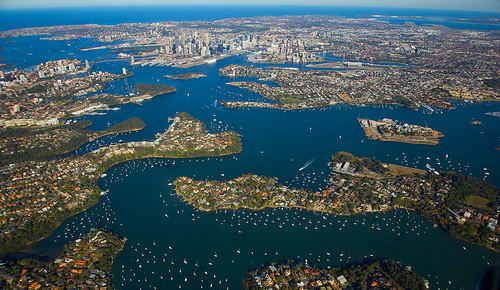Several decision support systems were developed in recent years to encourage climate adaptation planning in coastal areas, especially at a national to global scale. However, few prototypes are easy to use and accessible for decision-makers to evaluate and manage risks locally.
In a paper recently published on Ocean & Coastal Management a team of authors (among them, CMCC researchers S. Torresan, A. Critto, A. Zabeo, E. Furlan, A. Marcomini) presented a Decision Support System for coastal climate change risk assessment that implements Multi-Criteria Decision Analysis and Geographic Information Systems.
More in detail, DESYCO is a GIS based decision support system specifically designed to better understand the risks that climate change poses at the regional/subnational scale (e.g. the effect of sea level rise and coastal erosion on human assets and ecosystems) and set the context of strategic adaptation planning within Integrated Coastal Zone Management.
The authors illustrated architecture, interfaces and functionalities for end-users.
The software is configurable and adaptable to different case studies.
Results showed how the tool can be applied to aid coastal adaptation decision-making.
The abstract of the paper:
Several decision support systems were developed in recent years to encourage climate adaptation planning in coastal areas, especially at a national to global scale. However, few prototypes are easy to use and accessible for decision-makers to evaluate and manage risks locally. DESYCO is a GIS based decision support system specifically designed to better understand the risks that climate change poses at the regional/subnational scale (e.g. the effect of sea level rise and coastal erosion on human assets and ecosystems) and set the context of strategic adaptation planning within Integrated Coastal Zone Management. It implements a Regional Risk Assessment (RRA) methodology allowing the spatial assessment of multiple climate change impacts in coastal areas and the ranking of key elements at risk (beaches, wetlands, protected areas, urban and agricultural areas). The core of the system is a Multi-Criteria Decision Analysis (MCDA) model used to operationalize the steps of the RRA (hazard, exposure, susceptibility, risk and damage assessment) by integrating a blend of information from climate scenarios (global/regional climate projections and hydrodynamic/hydrological simulations) and from non-climate vulnerability factors (physical, environmental and socio-economic features of the analysed system). User-friendly interfaces simplify the interaction with the system, providing guidance for risk mapping, results communication and understanding.
DESYCO was applied to low-lying coastal plains and islands (the North Adriatic Sea, the Gulf of Gabes and the Republic of Mauritius), river basins and groundwater systems (Upper Plain of Veneto and Friuli-Venezia Giulia, Marche Region). The paper presents the RRA methodology, the structure of DESYCO and its software architecture, showing the capabilities of the tool to support decision making and climate proofing in a wide range of situations (e.g. shoreline planning, land use and water resource management, flood risk reduction).
Read the integral version of the paper
:
Torresan S., Critto A., Rizzi J., Zabeo A., Furlan E., Marcomini A.
DESYCO: A decision support system for the regional risk assessment of climate change impacts in coastal zones
2016, Ocean & Coastal Management, vol. 120, pp. 49-63




